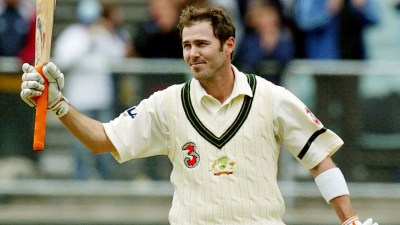Differences aplenty, Cong-PDP coalition shaky from the start
It was a coalition of convenience and the collapse of the Jammu and Kashmir Government on Saturday was no surprise, said experts.

It was a coalition of convenience and the collapse of the Jammu and Kashmir Government on Saturday was no surprise, said experts.
8220;It was just waiting to happen and since its inception both the Congress and the PDP were looking for a politically favourable issue to walk out of the coalition and then exploit the break-up for political gains,8221; a political analyst said.
The two parties, feel many, were unnatural allies with the PDP supporting schemes that favoured the Kashmiri cause while the Congress sided with development for Jammu. The differences on the controversial transfer of forest land to the Amarnath Shrine Board, in fact, surfaced only after the massive public outrage.
It was the PDP leadership, especially its Forest Minister Qazi Afzal who had been instrumental in bringing the land deal before the cabinet. The Congress ministers pushed it further and approved it.
The Congress-PDP coalition has been a troubled marriage since the beginning, where both parties constantly complained and even conspired against each other. However, the PDP enjoyed very cordial relations with the Congress high command, who at several times intervened to sort out differences between the coalition partners. Sources said that New Delhi often preferred PDP over its own chapter in the state.
The first major fight between the two parties started when PDP insisted that they would lead the coalition, seeking the Chief Minister8217;s post for its patron Mufti Mohammad Sayeed. The Congress refuted the claim as it had more members in the legislature. However, the issue was resolved with the intervention of New Delhi, who came up with a suggestion for a three-year term for each party. Once the PDP-led coalition took charge, the Congress ministers, especially from Jammu, created problems for Mufti.
The state Government was literally divided between Jammu and Kashmir on sharp regional and communal basis. This communal polarisation resurfaced when CM Mufti refused Governor Sinha8217;s unilateral extension of the Amarnath Yatra to two months in 2004. Four Congress ministers from Jammu resigned over the issue, which was again resolved by the Congress high command negotiating a settlement and extending the yatra to one-and-half months.
Once Ghulam Nabi Azad took over as the Chief Minister in 2005, the discord continued with the PDP8217;s demand for demilitarisation being vehemently opposed by the Congress. The PDP threatened to pull out of the government but another intervention by New Delhi ensured the continuation of the state Government. The chasm between the two was so deep-rooted that even the bureaucracy was divided along the party lines.
However, a section of experts feel that the end of this coalition came at an unexpected time with the state Assembly elections only four months away. While the public mood forced the PDP to part ways with the Congress, it might not help the party do well in the polls.
- 01
- 02
- 03
- 04
- 05































